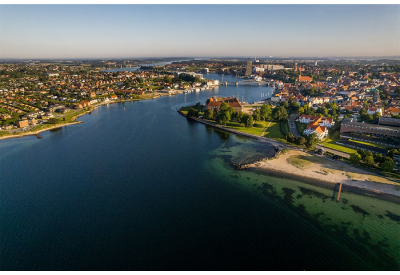Ministers From Around the World Agree to Speed Up Energy Efficiency Progress to Help Tackle Global Energy Crisis

June 17, 2022
Governments issue joint statement after IEA Global Conference in Denmark, highlighting efficiency’s benefits for energy security, affordability and sustainability. Global energy and climate leaders meeting at the IEA’s Global Conference on Energy Efficiency have agreed on actions to accelerate improvements in energy efficiency that can reduce energy bills, ease dependence on imported fuels and speed up reductions in greenhouse gas emissions.
At the end of the three-day Global Conference in Sønderborg, Denmark, on 7-9 June, ministers and other senior representatives from 24 countries – including France, Germany, Indonesia, Japan, Mexico, Senegal and the United States – and the African and European Unions issued a joint statement stressing the importance of energy efficiency for addressing many of today’s critical challenges, including the energy crisis, inflationary pressures and rising greenhouse gas emissions.
“Energy efficiency and demand side action have a particularly important role to play now as global energy prices are high and volatile, hurting households, industries and entire economies,” the joint statement said. “Energy efficiency offers immediate opportunities to reduce energy costs and reduce reliance on imported fuels.” The statement also welcomed “the new IEA research highlighting the significant environmental, economic and social benefits of early action on energy efficiency.”
The governments said they intended “to continue to seek opportunities for exchange and collaboration towards better policy making and implementation of energy efficiency actions.” They asked the IEA “to continue to facilitate and support these actions” and called on “all governments, industry, enterprises and stakeholders to strengthen their action on energy efficiency.”
IEA Executive Director Fatih Birol said: “The IEA started the Global Conference on Energy Efficiency seven years ago in order to drive a high-level worldwide discussion on an area that we saw was not getting the policy attention it deserved. This week’s conference has shown the value of these efforts, not just in bringing together energy and climate leaders from around the world – but also in increasing ambition and action on efficiency to help tackle the global energy crisis. I believe we will look back at this conference as a key moment for bolstering international progress on energy efficiency, resulting in reduced energy bills for citizens, enhanced energy security for countries and lower emissions for our planet.”
The Global Conference was co-hosted by Denmark’s Minister of Climate, Energy and Utilities Dan Jørgensen, who said: “This is a global recognition of energy efficiency and its importance for our climate as well as our push for energy independence. If we work together, share our knowledge and showcase our different technologies, as we have shown ours here in Denmark, we can increase our global efforts for energy efficiency.”

Ministers in attendance included those from Denmark, Germany, Hungary, Indonesia, Ireland, New Zealand, Nigeria, Panama, Senegal, Sweden and the United Kingdom. Participants also included the African Union Commissioner for Infrastructure and Energy Amani Abou-Zeid and European Commissioner for Energy Kadri Simson. Ukrainian Energy Minister Herman Halushchenko addressed the Conference live via video link.
Over the three days, participants discussed issues such as buildings of the future, the role of consumer behaviour, and how to unlock financing for efficiency measures. The final day today included a unique closed-door session where Ministers shared best practices on how to put intentions into action.
According to the new IEA analysis, doubling the current global rate of energy intensity improvement to 4% a year has the potential to avoid 95 exajoules a year of final energy consumption by the end of this decade compared with a pathway based on today’s policy settings. This is equivalent to the current annual energy use of China. That level of savings would reduce global CO2 emissions by an additional 5 billion tonnes a year by 2030, about a third of the total emissions reduction efforts needed this decade to move the world onto a pathway to net zero emissions by mid-century, as laid out in the Net Zero Roadmap the IEA published last year.
These extra efforts on efficiency and related areas would cut global spending on energy. For example, households alone could save at least USD 650 billion a year on energy bills by the end of the decade compared with what they would have spent in a pathway based on today’s policies. The quantity of natural gas the world would avoid using is equal to four times what Europe imported from Russia last year, while the reduced oil consumption would be almost 30 million barrels of oil per day, about triple Russia’s average production in 2021. This global efficiency effort would help create 10 million additional jobs in fields ranging from building retrofits to manufacturing and transport infrastructure.
The new IEA analysis shows the significant opportunities for rapid energy efficiency gains in all sectors of the global economy. Most of these opportunities involve readily available technologies and would fully pay for themselves through lower running costs, especially at today’s steep energy prices. By 2030, around a third of the avoided energy demand comes from deploying more efficient equipment, ranging from air conditioners to cars. About a fifth comes from electrification, such as switching to heat pumps or electric cars. Digitalisation and use of more efficient materials in industry provide much of the rest.
Read the report
This report underscores the vital role of energy efficiency and energy saving in meeting today’s crises by immediately addressing the crippling impacts of the spike in energy prices, strengthening energy security and tackling climate change. Explore report

